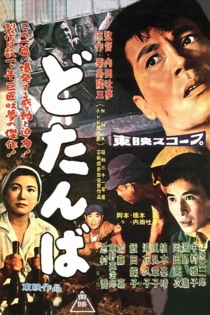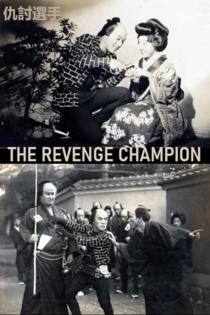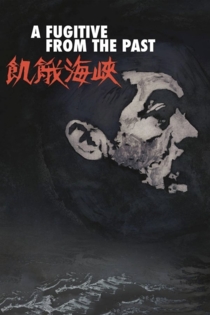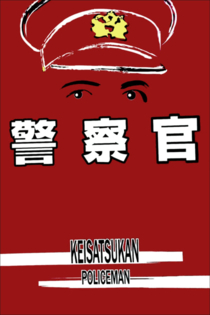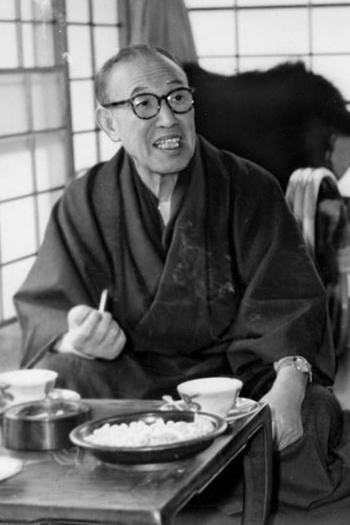
Tomu Uchida
1898 - 1970In 1941, Uchida quit the Nikkatsu studio, and after failing to start his own production company, in 1943 began to work with the Manchukuo Film Association, although he never completed a film there. In 1945 he was taken prisoner and held in Manchuria until 1954, when he returned to Japan.
Upon he return, he joined the Toei studio. His post-war movies reveal a strong genre stylist with no immediately discernible themes, much like many golden-age Hollywood directors. Uchida effortlessly directed chamber dramas, comedies, and samurai epics, often in color, and with a forward-looking dose of irony.
限りなき前進
Tomu Uchida
Isamu Kosugi, Hisako Takihana
One of Uchida’s early sound films, Unending Advance is based on a curious story by Yasujiro Ozu, in which an examination of the quotidian problems of a middle-aged salaryman and his family segues into an idyllic dream of an implausible future. The surviving print, although incomplete, offers an essential glimpse into Uchida’s prewar period, when he was associated more with realist dramas than with the period films that dominated his work after the war.
Unending Advance
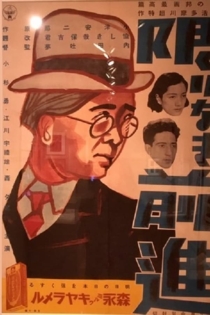
Hero of the Red Light District
Tomu Uchida
Chiezō Kataoka, Yoshie Mizutani
A successful textile industrialist from the provinces, who is beloved by his employees for his kindness, cannot find a wife because of a disfiguring birthmark on his face. Even the courtesans in Yoshiwara refuse to entertain him, until an indentured peasant prostitute, Tamarazu, takes the unsavoury assignment and treats him with brash tenderness.
Hero of the Red Light District
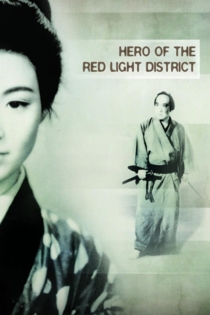
たそがれ酒場
Tomu Uchida
Daisuke Katō, Eijirō Tōno
Takes place in one place, a beer hall, over the course of one evening. Uchida employs this concentration of setting and time to fashion a microcosm for a group portrait of Japan. One by one, the regulars of the bar appear: the pianist who dreams of becoming a composer but has disappeared from the music world after a knifing; a stripper who had planned to be a ballet dancer; an elderly painter trying to make a living at pachinko, and who rues his art having been used for militarist propaganda during the war; a young waitress considering elopement; a colonel turned real estate broker who attempts to rouse the crowd in military song until he realizes the tune has been transformed by marchers in the street into a leftist chant. The "twilight" is more than just a time of day; here, it is a state of being, a suspension between past and present, between the camaraderie of the saloon and the harsh world outside.
Twilight Saloon
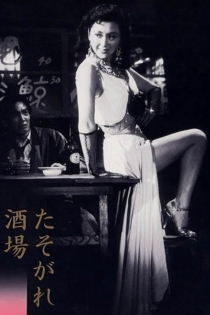
Naniwa no koi no monogatari
Tomu Uchida
Kinnosuke Nakamura, Ineko Arima
The adopted son of an Osaka courier falls in love with a prostitute and, discovering that she is about to be purchased by a client, steals money from his employer to redeem her. Hunted criminals, the two young lovers take flight to Yamato, but, as in Chikamatsu's other domestic tragedies of love and duty (known as sewamono), they must be pursued and their passion destroyed by death. Favourite Uchida themes, such as the indenturing of a prostitute (cf. YOSHIWARA; A BLOODY SPEAR AT MT. FUJI), and his characteristic emphasis on performance and theatrical artifice re-emerge here; but the daring device of having Chikamatsu appear as a character - not unlike having Shakespeare interpolated into a film adaptation of one of his plays - is just one of many surprises this remarkable film holds. “Extraordinary” (Donald Richie).
Chikamatsu's Love in Osaka
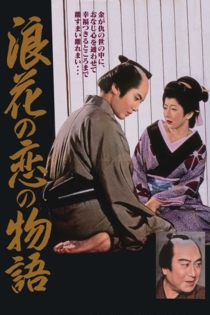
血槍富士
Tomu Uchida
Chiezō Kataoka, Ryūnosuke Tsukigata
Tragicomic road movie set during the Edo period. It follows a samurai, his two servants – including spear-carrier Genpachi – and the various people they meet on their journey, including a policeman in pursuit of a thief, a young child and a woman who is to be sold into prostitution.
Bloody Spear at Mount Fuji
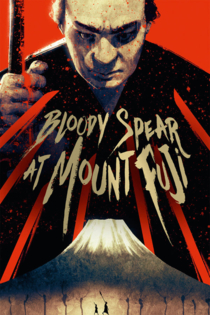
自分の穴の中で
Tomu Uchida
Yumeji Tsukioka, Mie Kitahara
Nobuko is a widow who lives with her daughter-in-law Tamiko and her brother Junjiro. The family's gatekeeper, Komatsu, is attracted to Tamiko, but she is encouraged to marry a doctor and he is afraid to tell her his feelings.
A Hole of My Own Making
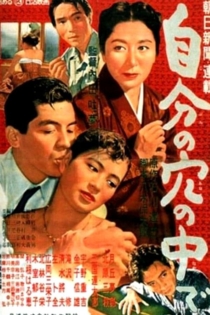
人生劇場 飛車角と吉良常
Tomu Uchida
Koji Tsuruta, Tomisaburō Wakayama
With his penultimate film, Uchida revisited one of his popular prewar titles, 1936’s Theatre of Life, an adaptation of Shiro Ozaki’s eponymous novel. Three-time Seijun Suzuki collaborator Goro Tanada wrote a gangsterized adaptation of Ozaki’s story for Uchida at a time when the yakuza had eclipsed the samurai genre as Toei's main cash crop. Protagonist Hishakaku murders a man in a quarrel over a barmaid and goes to jail. In his temporary absence, his girlfriend Otoyo, a former geisha, falls for Hishakaku’s brother, inciting a dangerous love triangle that, in typical yakuza fashion, ends tragically.
Hishakaku and Kiratsune: A Tale of Two Yakuza
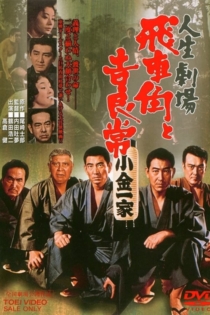
Miyamoto Musashi: Showdown at Hannyazaka Heights
Tomu Uchida
Kinnosuke Nakamura, Wakaba Irie
The remake of Yoshikawa's novel continues with the second installment in which Takezo, soon to be Miyamoto Musashi, emerges from the Himeji Castle after three years of intense contemplation and philosophical study and starting on his epic quest to complete his skill in the Way.
Miyamoto Musashi: Showdown at Hannyazaka Heights
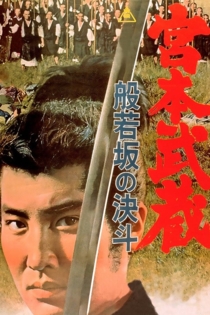
The Mad Fox
Tomu Uchida
Hashizo Okawa, Michiko Saga
A court fortune-teller loses his mind after a conspiracy leads to the death of his lover. Hope appears to be on the horizon after he becomes romantically involved with his dead lover’s twin sister, but more complications arise thanks to a chance encounter with a clan of shape-shifters.
The Mad Fox
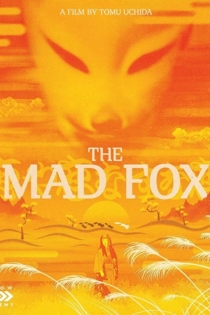
Miyamoto Musashi: The Duel at Ichijo Temple
Tomu Uchida
Kinnosuke Nakamura, Wakaba Irie
In the fourth installment, Musashi's potentially greatest opponent Kojiro jumps in and out of the story at the oddest and most coincidental moments. As his great love Otsu has succumbed to madness. Musashi then sets off to beat the functionaries of a treacherous clan in an arranged duel. 73 against one. Boastful Kojiro watches, secure in the knowledge that only he is a worthy opponent.
Miyamoto Musashi: The Duel at Ichijo Temple
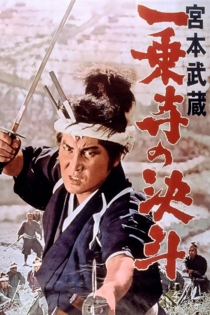
どたんば
Tomu Uchida
Takashi Shimura, Shinjirô Ehara
Based on a 1956 television feature on Japan’s national network, NHK, this is one of Uchida’s rarest films. A socially conscious drama with a contemporary backdrop, Dotanba focuses on the attempts to rescue a group of trapped miners. The title is a figure of speech — (essentially “last minute” or “eleventh hour”) — that refers to a situation of peril. The film boasts a script co-written by Uchida and Akira Kurosawa’s frequent screenwriter, Shinobu Hashimoto, and stars Kurosawa’s frequent star Takashi Shimura.
The Eleventh Hour
